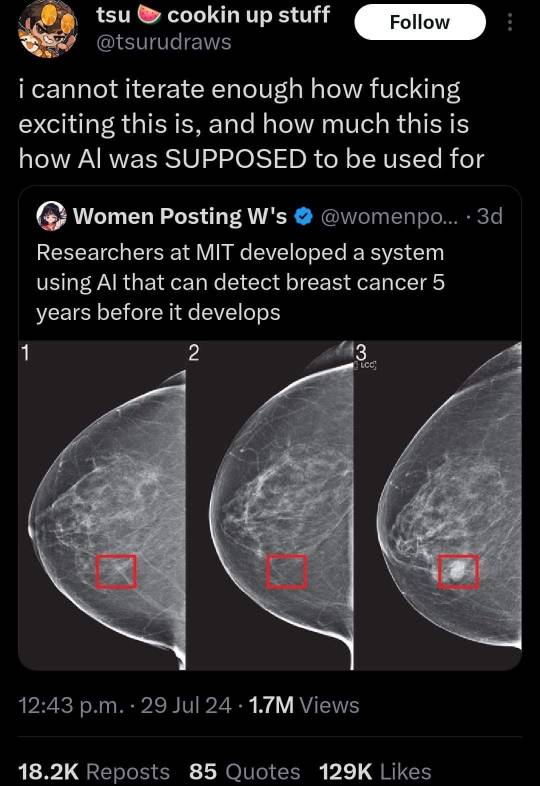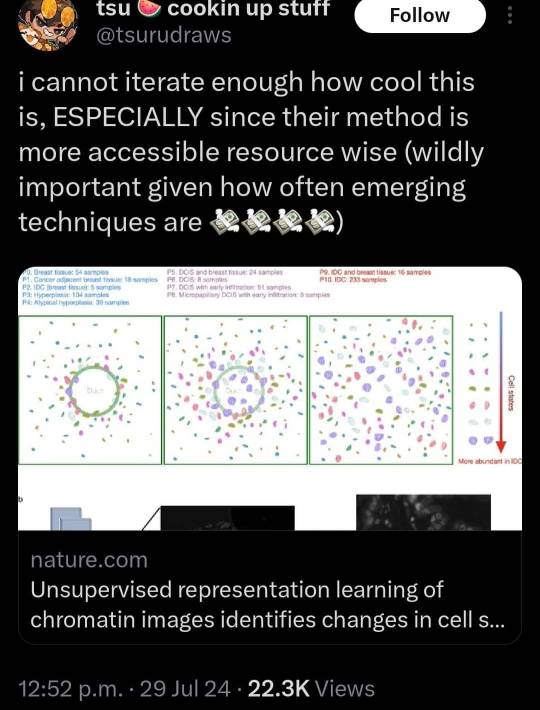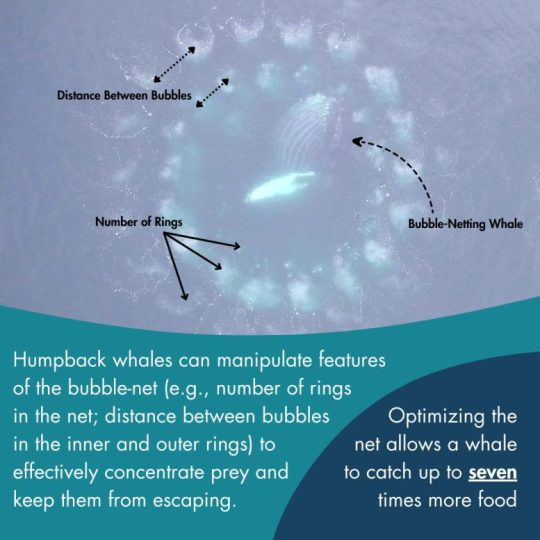#oncology AI
Explore tagged Tumblr posts
Text
youtube
#Cancer diagnosis#deep learning#histopathology#ResoMergeNet#breast cancer#colon cancer#lung cancer#cancer prognostication#AI in healthcare#digital pathology#medical AI#machine learning models#multi-resolution analysis#pathology innovation#precision medicine#oncology AI#healthcare technology#cancer care#histopathological imaging#cancer research.#Youtube
0 notes
Note
I'm worried about the rising rate of young adults getting cancer.
For what it's worth, we've actually made a shocking amount of progress against cancer - especially the most common cancers like breast cancer, and especially in the past 30 years.
Cancer rates have been falling, often dramatically (x, x, x, x, x, x). One of the best examples it that breast cancer deaths in the United States dropped 58% between 1975 and 2019 (x).
Right now, we're at the beginning of an absolute revolution in cancer care that promises to increase survival rates even further. This revolution has been going on to a lesser degree since the first human genome was successfully sequenced in the early 2000s (and in fact, the first gapless sequencing of a human genome was finally finished just two years ago, in 2022), and to a greater extent since CRISPR DNA-editing technology was first successfully tested in 2013, and since medical digitzation/digital communication and vaccination were massively spurred ahead in 2020, by the COVID pandemic (x, x).
Right now, the results of this revolution are only beginning to trickle out into actual treatments. But I guarantee you, in the next one to three decades, the way we fight cancer will be massively transformed.
We're talking personalized genome sequencing for each person with cancer - not just for early and better detection, but even to figure out what types of treatments will work best. (x, x, x, x)
We're talking using CRISPR-based DNA editing to literally cut cancer-causing mutations out of your DNA, to edit the genes of immune cells to better detect and kill cancer cells, and to kill cancer-causing viruses. (x, x, x, x)
We're talking using CRISPR-based screening to figure out how chemotherapy resistance works, so that we can overcome it - and even weaponize it. (x, x)
We're talking using CRISPR to edit immune cells so that they recognize and target the mutations of a single individual's specific tumor. (x)
We're talking new types of testing that can predict if cancer will return years before it shows up on scans. (x)
We're talking using (non-generative) AI to massively increase the accuracy and earliness of cancer detection - which by the way is already starting to happen, there are several AI-based systems that detect cancer earlier and more accurately than doctors do. (x, x, x, x, x, x)
Also, the more we transition to a green, sustainable, and ethical future, the fewer cancer-causing substances will be in the environment (fossil fuels, oil drilling, and mining are massive sources of carcinogens at every point in the process).
Cancer is awful. That is a massive understatement. But the fight against cancer is one where there are so many reasons for hope.
#dyingpleasehelp#ask#me#cw cancer#tw cancer#cancer#breast cancer#cancer treatment#oncology#fuck cancer#healthcare#medicine#medical news#chemotherapy#crispr#gene editing#public health#ai#pro ai#good news#hope
605 notes
·
View notes
Text
Innovative technique merges nano informatics with AI for potential breakthroughs in cancer prediction

- By InnoNurse Staff -
A new study has unveiled a cutting-edge approach that integrates nano informatics and machine learning to accurately forecast cancer cell behaviors. This method facilitates the identification of cell subpopulations with unique traits, such as drug sensitivity and metastatic potential.
Read more at Hebrew University of Jerusalem/Medical Xpress
///
Other recent news and insights
Irish healthtech startup Altach raises €1.2M to improve treatments for articular cartilage injuries (Silicon Canals)
#health informatics#health it#ai#machine learning#cancer#oncology#health tech#medtech#biotech#ireland#altach#cartilage
6 notes
·
View notes
Text
US: Breast cancer deaths have decreased by 44% since 1989, despite an increase in cases

- By Nuadox Crew -
Breast cancer rates in the U.S. have been rising, particularly among younger women and Asian Americans, according to a study by the American Cancer Society.
From 2012 to 2021, breast cancer cases increased by 1% annually, with rates growing faster for women under 50 than those older. Asian American women saw the most rapid increase in incidence, possibly linked to immigration patterns. Despite this, the breast cancer death rate has declined by 44% since 1989, preventing over 517,900 deaths.
However, the benefits of medical advancements have been unevenly distributed. Black women have a 38% higher mortality rate than White women, despite having lower breast cancer incidence, due to systemic racism and less access to quality care. Native American mortality rates have remained unchanged since 1990. The report calls for more racial diversity in clinical trials and improved access to high-quality screening for underserved women.
In April, the U.S. Preventive Services Task Force recommended that women begin biennial breast cancer screenings starting at age 40, adjusting its previous guidance.
Read more at AFP/Medical Xpress
Scientific paper: Angela N. Giaquinto et al, Breast cancer statistics 2024, CA: A Cancer Journal for Clinicians (2024). DOI: 10.3322/caac.21863
--
Other recent news:
China's BeiDou-3 Navigation Satellite System: The final two satellites for China's independently-developed BeiDou-3 Navigation Satellite System were launched in September, completing the system. President Xi Jinping has been closely involved in the project, emphasizing its importance for China's economic and social development.
Step Aside, Bolts: Discover the future of stronger structural connections with interlocking metasurfaces.
Tech NL Innovation Week: The tech sector in Newfoundland and Labrador (Canada) has seen significant growth, now employing nearly 10,000 people. The industry recently gathered to celebrate achievements and discuss the future.
California Governor's Tech Bill Deliberations: Governor Gavin Newsom is carefully considering a high-profile bill aimed at regulating the tech industry, particularly AI companies. He recently vetoed the bill, citing concerns about stifling innovation.
Dark Matter and Mars' Mysterious Wobble: Scientists are exploring changes in Mars' orbit as a potential new way to study dark matter.
Methane Emissions from Dairy Farms: New research indicates that methane emissions from slurry stores on dairy farms could be significantly higher than previously thought.
Antarctic Krill Carbon Storage: Scientists have discovered that Antarctic krill store as much carbon as key coastal habitats like mangroves and salt marshes.
Weight Loss Habits: A study has identified two key habits linked to a lower BMI, offering new insights into weight management.
Linus Pauling's Electron Bonding Theory: A breakthrough study has validated the existence of a stable single-electron covalent bond between two atoms, confirming a century-old theory by Linus Pauling.
#population health#cancer#oncology#usa#women health#medicine#health#space#china#bolts#engineering#canada#tech industry#california#government#ai#mars#dark matter#antarctic#carbon#weigh loss#bmi#linus pauling#atoms#electrons
2 notes
·
View notes
Text
AI in Oncology: A Game-Changer in Cancer Care
Artificial intelligence (AI) is revolutionizing oncology, offering innovative solutions that improve cancer diagnosis and treatment. With rising cancer incidence and advancements in AI technology, the global AI in oncology market is poised for significant growth. As AI continues to evolve, its role in transforming cancer care will only grow stronger, offering hope for better outcomes and improved patient experiences. Read more..

2 notes
·
View notes
Text
Reminder, analytical AI and generative AI aren't the same. While I loathe generative AI and feel there is no ethical way to use it at this time, analytical AI can serve valuable purposes in many fields.



133K notes
·
View notes
Text
Peter Ellman, President and CEO of Certis Oncology Solutions – Interview Series
New Post has been published on https://thedigitalinsider.com/peter-ellman-president-and-ceo-of-certis-oncology-solutions-interview-series/
Peter Ellman, President and CEO of Certis Oncology Solutions – Interview Series


Certis Oncology Solutions, led by Peter Ellman, President and CEO, is a life science technology company dedicated to realizing the promise of precision oncology. The company’s product is Oncology Intelligence® — highly predictive therapeutic response data derived from advanced cancer models. Certis partners with physician-scientists and industry researchers to expand access to precision oncology and address the critical translation gap between preclinical studies and clinical trials.
Can you describe the broader problem in oncology research that the CertisOI Assistant is addressing?
The failure rate of oncology investigational drug candidates is high. It was recently reported that in 2023, 90% of oncology programs ultimately failed. That figure is a remarkable improvement over the historical trend, which hovered around 96% until 2022. Considering the cost of developing drugs, a 90% failure rate is not sustainable. Imagine how patients would benefit if the success rate were even 50%.
CertisOI Assistant immediately addresses two really important issues that contribute to this failure rate:
Improved preclinical model selection: Many compounds show promising results in preclinical studies but fail to demonstrate a sufficient therapeutic effect in humans.Most members of the scientific community point to preclinical models as part of the problem. Choosing preclinical models with the correct gene expression signature (and using orthotopic engraftments for pivotal studies) can improve “translation” into the clinic.
Earlier, better biomarker identification: Relying on biomarkers that do not accurately predict therapeutic response can result in failed clinical trials. CertisOI Assistant is integrated with CertisAI, our patent-pending predictive AI/ML platform, enabling the identification of predictive biomarkers early in the drug development process.
How does the CertisOI Assistant use AI to improve access to oncology data, and what sets it apart from other AI tools in the field?
The CertisOI Assistant provides advanced data analysis and predictive modeling capabilities through an easy-to-use, natural language interface. It stands out in several ways:
Comprehensive Dataset Integration: The assistant integrates a wide range of oncology data, including patient information, tumor characteristics, genetic profiles, and drug response predictions. This holistic approach allows for a more comprehensive analysis than tools focusing on isolated data types.
AI-Based Predictions: The assistant employs AI algorithms to predict drug response and resistance, offering insights into which treatments will likely be effective for specific cancer models. This predictive capability is crucial for personalized medicine and sets it apart from tools that rely solely on historical data.
User-Friendly Interface: By providing an intuitive interface for querying and analyzing complex datasets, the assistant makes it easier for researchers to access and interpret oncology data without requiring advanced technical skills.
Focus on Pre-Clinical Models: The assistant specializes in pre-clinical oncology research, particularly PDX and cell line models, offering unique insights into early-stage drug development and tumor biology.
Interactive Visualizations: The assistant supports interactive visualizations, such as pharmacology and tumor growth studies, enabling researchers to explore data more engaging and informatively.
How does the tool transform complex data into actionable insights, especially for researchers working on drug sensitivity or genomic data?
CertisOI Assistant leverages a structured workflow to transform raw data into meaningful insights. It involves querying a comprehensive oncology dataset, analyzing the data, and presenting the results in a clear and interpretable format. Here’s how it works:
Data Querying: CertisOI Assistant can access a relational database containing detailed information about oncology models, including patient data, tumor characteristics, genomic data, and drug response predictions. It uses SQL-like queries to extract relevant data based on the researcher’s specific needs.
Data Analysis: Once the data is retrieved, CertisOI Assistant can perform various analyses, such as identifying common mutations, correlating gene expression with drug sensitivity, or evaluating pharmacology study results. It can also rank and filter data to highlight the most significant findings.
Visualization: The assistant can present data in tabular formats, generate interactive charts for pharmacology and tumor growth studies, and display histology images. This visualization helps researchers quickly grasp complex data patterns and relationships.
Interpretation and Insights: By providing a clear interpretation of the data, including predictions for drug sensitivity or resistance, CertisOI Assistant helps researchers make informed decisions about potential therapeutic strategies or further experimental directions.
Customization and Flexibility: Researchers can tailor their queries to focus on specific cancer types, genetic markers, or treatment responses, allowing for a highly customized analysis that aligns with their research objectives.
How does the CertisOI Assistant enhance researchers’ ability to select cancer models, design biomarker strategies, or perform in silico validations?
I covered the first two areas – the cancer model section and biomarker strategy design – at the outset of this interview, so I’ll focus on performing in silico validations. CertisOI Assistant provides a virtual environment to test and validate hypotheses related to drug efficacy, target engagement, and biomarker discovery without the need for immediate laboratory experiments. This allows them to rapidly refine their hypotheses and focus experimental efforts on the most promising avenues.
Here are a few examples:
Drug Response Predictions: Use AI-based predictions for drug response and resistance to assess how different models are likely to respond to specific drugs. This can help validate the potential efficacy of a drug in silico before moving to in vitro or in vivo studies.
Genomic and Molecular Profiling: Analyze the genomic data, including mutations, gene expression, and copy number variations, to identify potential targets and validate their relevance to the drug’s mechanism of action. This can help in understanding the molecular basis of drug sensitivity or resistance.
Biomarker Discovery: Correlate molecular characteristics with drug response predictions to identify potential predictive biomarkers. This can guide the selection of patient populations more likely to benefit from a particular therapy.
Combination Therapy Exploration: Explore drug synergy predictions to identify promising drug combinations that may enhance therapeutic outcomes. This can provide insights into potential combination strategies that can be further validated experimentally.
Histological Analysis: Use histology images to validate the morphological effects of drugs on tumor tissues, providing additional evidence for the drug’s mechanism of action and potential efficacy.
Cross-Model Comparisons: Compare different models to understand how various genetic backgrounds influence drug response, helping to validate hypotheses about the role of specific genes or pathways in silico.
Virtual Screening: Perform virtual screening of drugs against a wide range of models to prioritize candidates for further experimental validation.
Can you share examples of how researchers are anticipated to use this tool to improve their workflows or achieve breakthroughs?
The simplest example is preclinical model selection. Every preclinical study begins with the selection of tumor models. CertisOI Assistant takes the manual effort out of this process and brings great precision to selecting the optimal models for any given study.
Another is developing a biomarker strategy. The traditional approach is to hypothesize what biomarker or biomarkers might be linked to the drug’s mechanism of action and then test those hypotheses in preclinical studies, which is usually an iterative process. If preclinical data is promising, researchers must validate predictive biomarkers in human clinical trials—and as discussed, the failure rate is high.
The CertisOI Assistant helps researchers identify and validate more precise, predictive gene expression biomarkers earlier in the development process and with less iteration than the traditional workflow—saving time, and money, and improving chances for commercial success.
What kinds of cancer models or datasets does the tool support, and how does this breadth benefit the research community?
The current version of CertisOI gives researchers access to Certis’ rapidly expanding library of PDX and PDX-derived tumor models and the entire Cancer Cell Line Encyclopedia (CCLE) of models. The platform’s algorithms also draw on data from Genomics of Drug Sensitivity in Cancer (GDSC), International Cancer Genome Consortium (ICGC), CI ALMANAC, O’Neil, and other datasets. This holistic approach to data integration allows for a more comprehensive analysis than tools that focus on isolated data types.
The CertisOI Assistant is designed to be user-friendly. How do you ensure that it is accessible to researchers who may not have extensive technical expertise?
Several features make CertisOI Assistant accessible to researchers at all levels:
Intuitive Interface: The interface is designed to be intuitive and easy to navigate, allowing users to perform complex queries and analyses without needing to understand the underlying technical details.
Guided Workflows: The assistant provides guided workflows for common research tasks, such as querying drug response predictions, analyzing genomic data, and exploring pharmacology studies. This helps users focus on their research questions without getting bogged down in technical complexities.
Natural Language Processing: Users can interact with the assistant using natural language queries, making accessing the information they need easier for those without technical expertise. The assistant interprets the queries and translates them into the appropriate database queries.
Comprehensive Documentation: Detailed documentation and tutorials help users understand how to use the assistant effectively. This includes step-by-step guides, examples, and explanations of key concepts.
Interactive Visualizations: The assistant provides interactive visualizations for data analysis, such as charts and histology images, allowing users to explore and interpret data visually without needing to write code.
Responsive Support: Users can access responsive support to assist with any questions or issues. This ensures they can get help quickly and continue their research without unnecessary delays.
Customizable Queries: While the assistant provides default workflows, it also allows for customization, enabling users to tailor queries to their specific research needs without requiring deep technical knowledge.
Collaboration is a key aspect of research. How does the CertisOI Assistant facilitate teamwork among researchers or institutions?
With CertisOI Assistant, researchers from different teams or institutions can access the same dataset and tools, allowing them to work collaboratively on shared projects or research questions. The platform also makes it easy to download and share data queries, results, and insights among team members so everyone involved in a project can contribute effectively.
What are the biggest challenges in scaling AI adoption in cancer research, and how can they be addressed?
Significant challenges include data security, data integration, and trust in AI‐based outcome predictions. I am not an expert on data security or data integration, but great minds are working to solve those challenges. With respect to trusting AI-generated predictions, we need efficient and credible ways to validate those predictions.
Certis has taken a two-pronged approach to this: in silico validation via internal, cross-validation studies, and in vivo validation—performing studies in clinically relevant mouse models to evaluate the accuracy of our platform’s predictions. Over time, these tools will also be validated clinically in human patients—but of course, that will take a great deal of time and money, as well as the willingness to change the current cancer treatment paradigm. The medical and regulatory community will have to stop relying on how things have always been done and embrace the power of computational analyses to inform decisions.
How do you envision tools like the CertisOI Assistant shaping the future of cancer treatment and precision medicine?
Modern medicine doesn’t yet have a great way to match patients to the ideal treatments. Overall, only 10% of cancer patients experience a clinical benefit from treatments matched to tumor DNA mutations. That not only hurts patients’ health, but it also harms them financially. An estimated $2.5 billion —with a B—is wasted on ineffective therapies. It is a very sad fact that 42% of cancer patients fully deplete their assets by the second year of their diagnosis.
Tools like CertisOI Assistant and CertisAI will help us realize the promise of precision medicine—getting people the optimal treatment for their unique form of cancer the first time, every time…. And to democratize access to more effective, personalized care.
Thank you for the great interview, readers who wish to learn more should visit Certis Oncology Solutions.
#2022#2023#adoption#ai#AI adoption#ai tools#AI/ML#Algorithms#almanac#analyses#Analysis#approach#assets#billion#Biology#biomarkers#Cancer#cancer treatment#cell#CEO#Certis Oncology Solutions#change#charts#clinical#code#Collaboration#Community#comprehensive#course#data
0 notes
Text
AI in Oncology: A Game Changer

AI is transforming oncology with its precision and efficiency. From early detection to personalized treatments, AI tools like imaging analytics, predictive algorithms, and wearable monitoring devices are revolutionizing cancer care. The market for AI in oncology is projected to grow at a remarkable CAGR of 40.1%, fueled by rising cancer prevalence and technological advancements. Challenges remain, including regulatory hurdles and data security, but the potential for improved outcomes and reduced costs make AI a vital force in oncology's future.
Download Sample Reports..
1 note
·
View note
Text
Chronic Diseases Driving AI-Based Clinical Trials Market Expansion
The AI-based clinical trials solution market is projected to reach USD 7,073.9 million by 2030, growing at a CAGR of 20.4%. This growth is largely driven by the rising incidence of chronic diseases and the demand for advanced medications. Artificial intelligence (AI) is revolutionizing patient recruitment, trial design, monitoring, and site selection in clinical research, significantly enhancing…

View On WordPress
0 notes
Text
Venture Capitalist Lip-Bu Tan joins India based 4baseCare 's advisory board. He possesses 30+ years of VC experience. His company Walden Catalyst Ventures mostly invests in Deeptech, ai, data, quantum, cloud, innocation and semiconductors.
#karnataka#india#usa#usa news#biotechnology#biotechindustry#oncology#vc#technology#techjour#ai#trendingnow#investing#automation#semiconductor#aws cloud#google cloud#innovationnews#innovation
0 notes
Text
Navigating the Future of Cancer Care with Generative AI: A Comprehensive Guide
The field of oncology is undergoing a transformative revolution, driven by advancements in artificial intelligence (AI). Generative AI, in particular, is playing a pivotal role in reshaping cancer treatment and clinical care. At the forefront of this revolution is Oncology GPS, leveraging the power of AI to provide comprehensive, end-to-end solutions for those affected by cancer. This blog explores how AI tools are revolutionizing oncology and how Oncology GPS is leading the charge.

The Role of AI in Oncology
AI in oncology is transforming the way we detect, treat, and manage cancer. By analyzing vast amounts of data from medical reports, genetic profiles, and clinical trials, AI algorithms can identify patterns and insights that were previously beyond human capability. This enables healthcare providers to:
Early Detection: AI-powered tools can analyze medical images with incredible precision, identifying early signs of cancer that might be missed by the human eye. This early detection is crucial for improving patient outcomes.
Personalized Treatment Plans: Each patient's cancer is unique, and AI can help tailor treatment plans based on individual genetic makeup and response to previous treatments. This personalized approach increases the likelihood of successful outcomes.
Ongoing Patient Monitoring: AI can continuously analyze patient data, providing real-time insights into how well a treatment is working and suggesting adjustments as needed. This dynamic approach ensures that patients receive the most effective care possible.
Generative AI in Cancer Treatment
Generative AI is a subset of AI that involves generating new data from existing datasets. In the context of cancer treatment, generative AI can create detailed simulations of cancer progression, predict patient outcomes, and even suggest new treatment protocols. This innovative approach is transforming the landscape of cancer care by offering:
Advanced Predictive Analytics: Generative AI can model various treatment scenarios, helping oncologists predict how different therapies will affect a patient. This allows for more informed decision-making and better patient outcomes.
New Treatment Protocols: By analyzing vast amounts of clinical data, generative AI can identify novel treatment combinations that may be more effective than existing protocols. This can lead to the development of new, cutting-edge therapies.
Enhanced Research Capabilities: Generative AI accelerates research by simulating clinical trials and predicting their outcomes, significantly reducing the time and cost associated with traditional trial methods.
Oncology GPS: Pioneering AI Tools in Clinical Care
Oncology GPS stands out by offering a suite of AI-driven solutions designed to support patients and healthcare providers at every stage of the cancer journey. Here’s how Oncology GPS is making a difference with its AI tools in clinical care:
Comprehensive Patient Reports: By integrating data from various sources, Oncology GPS provides detailed reports that offer a holistic view of a patient's condition. These reports are invaluable for making informed treatment decisions.
End-to-End Solutions: From diagnosis to post-treatment care, Oncology GPS covers all aspects of cancer care. This ensures continuity and consistency, which are critical for effective cancer management.
User-Friendly Platform: The Oncology GPS platform is designed to be intuitive and accessible, making it easy for patients and caregivers to understand and use the tools available to them. This empowers patients to take an active role in their care.
The Future of Cancer Care with Generative AI
The potential for generative AI to revolutionize cancer treatment is immense. Future advancements may include even more precise diagnostic tools, predictive analytics for anticipating cancer recurrence, and new treatment modalities that harness the power of machine learning. Oncology GPS is committed to staying at the cutting edge of these developments, ensuring that patients and healthcare providers have access to the latest and most effective tools available. By embracing generative AI, Oncology GPS is not just navigating the future of oncology – it is helping to shape it.
Conclusion
Generative AI is a game-changer in oncology, offering new hope and possibilities for patients and healthcare providers alike. Oncology GPS is leading the way in this exciting field, providing comprehensive, AI-driven solutions that enhance every aspect of cancer care. As we look to the future, the potential for generative AI to revolutionize oncology is immense, and Oncology GPS is poised to be at the forefront of this transformative journey.
Stay connected with us on Tumblr for more updates, insights, and stories of hope from the world of AI-powered oncology. Together, we can navigate the future of cancer care with confidence and optimism. Meet Dr. Tim at LinkedIn: https://www.linkedin.com/in/timothy-r-allen-md-phd%F0%9F%87%BA%F0%9F%87%B8%F0%9F%8E%97%EF%B8%8F-54459b297/
0 notes
Text
youtube
#Anticancer peptides#deep learning#natural peptides#generated sequences#cancer research#peptide therapeutics#drug discovery#AI in medicine#bioinformatics#molecular modeling#cancer treatment#machine learning#biomedical AI#precision oncology#peptide structures#targeted therapy#cancer therapy innovation#AI applications#peptide prediction#cancer biology.#Youtube
0 notes
Link
BPGbio Appoints Esteemed Cancer Researcher Dr. Dipanjan Chowdhury to Scientific Advisory Board
#AI #biopharma #therapeutics #mitochondrial #proteinhomeostasis #oncology #neurology #raredisease #drugdiscovery @BPGbio
#AI#biopharma#therapeutics#mitochondrial#proteinhomeostasis#oncology#neurology#raredisease#drugdiscovery#BPGbio
0 notes
Text
Researchers use AI to uncover sex-specific risk factors for aggressive brain cancer

- By InnoNurse Staff -
Researchers from the University of Wisconsin–Madison, led by Professor Pallavi Tiwari, are using AI to uncover risk factors for glioblastoma, a highly aggressive brain cancer, and how they vary between men and women.
Glioblastoma is more common and aggressive in men, but identifying patterns that predict tumor behavior has been challenging. Tiwari and her team have developed an AI model that analyzes pathology slides to identify subtle tumor characteristics linked to patient survival, while accounting for sex differences.
The study found that for women, tumors infiltrating healthy tissue were linked to worse outcomes, while in men, the presence of certain cells (pseudopalisading cells) indicated more aggressive tumors. This AI-driven research aims to enable more personalized cancer care and inspire new treatment approaches. Tiwari’s work extends beyond glioblastoma, with AI applications in analyzing pancreatic and breast cancers, and she is helping shape UW–Madison’s AI and health initiatives.

Image: These images display regions of glioblastoma tumors in females (top) and males (bottom) where the AI models predict the presence of higher and lower risk characteristics. Red areas indicate higher risk, while blue areas represent lower risk. Credit: Tiwari Lab / UW–Madison.
Read more at UW–Madison
2 notes
·
View notes
Text
Tool-making humpback whales: New study reveals complex bubble-net hunting techniques critical for survival

- By Nuadox Crew -
A new study published in Royal Society Open Science uncovers that humpback whales are among the few animals that both create and use tools, adding them to a rare group of species with this capability.
Previously known for their use of "bubble-nets" to hunt, these whales have now been observed manipulating these nets in sophisticated ways to maximize their food intake in Alaska. The research, conducted by the Marine Mammal Research Program (MMRP) at the University of Hawaiʻi and the Alaska Whale Foundation (AWF), demonstrates that solitary humpback whales craft complex bubble patterns, forming nets with internal rings to trap krill, tiny shrimp-like creatures. By controlling details like the number, size, and depth of the rings, whales can capture up to seven times more prey in a single dive without expending extra energy.
The study employed advanced research tools, including drones and non-invasive suction-cup tags, to monitor the whales' movements both above and below water. This research was challenging due to the remote location in Southeast Alaska and the difficulty of studying marine mammals, but the collaboration with AWF was crucial to the study's success.
Understanding these unique foraging behaviors is vital for conservation, as the whales’ survival depends on their ability to capture enough food during summer and fall in Alaska. The insights gained from this research could improve targeted conservation strategies, particularly in the protection of critical feeding grounds. As humpback whales face threats from habitat degradation, climate change, and pollution, their behavioral flexibility and ingenuity may be key to their survival in changing ocean environments. This study opens the door for further exploration of humpback whale behaviors, offering a richer understanding of their energetic needs and adaptability.

Image: Infographic illustrating the features of the bubble-net: Humpback whales can adjust the number of rings in the net and the distance between bubbles in the inner and outer rings to effectively concentrate prey and prevent their escape. Credit: Marine Mammal Research Program, UHM/ SOEST.
Read more at University of Hawaii at Manoa/SciTechDaily
Scientific paper: “Solitary humpback whales manufacture bubble-nets as tools to increase prey intake” by A. Szabo, L. Bejder, H. Warick, M. van Aswegen, A. S. Friedlaender, J. Goldbogen, J. M. Kendall-Bar, E. M. Leunissen, M. Angot and W. T. Gough, 1 August 2024, Royal Society Open Science.
DOI: 10.1098/rsos.240328
Other recent news
Eco-Friendly Cooling: A new cooling device developed by HKUST has shattered performance records, achieving a 75 K temperature lift.
AI in Healthcare: An AI system named AINU has been developed to detect cancer and viral infections with nanoscale precision.
Health: Research from Korea indicates that SGLT-2 inhibitors, a class of diabetes drugs, may also help in battling dementia.
#animals#oceanography#zoology#humpback whales#cooling#physics#ai#health tech#medtech#cancer#oncology#nanotechnology#medicine#health#sglt2#diabetes#dementia#aging#pharma
1 note
·
View note
Text
Hiatal Hernia Friendly Foods Delicious Dishes to Soothe Your Belly and Fight the Burn #herniadiet #n
#health #herniarepair #hernia #surgery #medicalstudents #medicalprofessionals #DrAtefAhmed #MedicalMystery #DoctorReacts #MentalHealthAwareness #ChronicIllness #HealthTips #Wellbeing #FitnessMotivation #MedicalSchool #Nutrition #HealthyLifestyle #DiseasePrevention #FirstAid #Anatomy #Healthcare #MedicalTechnology #PatientStories #DoctorLife #MedStudent Atef’s Notes In Hernia for Medical…

View On WordPress
#AI in medicine#anxiety#cardiac surgery#clinical rotations#diabetes#endoscopy#gastrointestinal medicine#healthcare technology#hernia#infectious diseases#laparoscopy#medical ethics#medical school tips#medical specialties#minimally invasive surgery#neurology#Neurosurgery#oncology#orthopedic surgery#palliative care#patient communication#physician burnout#psychiatry#Public health#residency application#robotic surgery#schizophrenia#telemedicine#usmle prep
0 notes